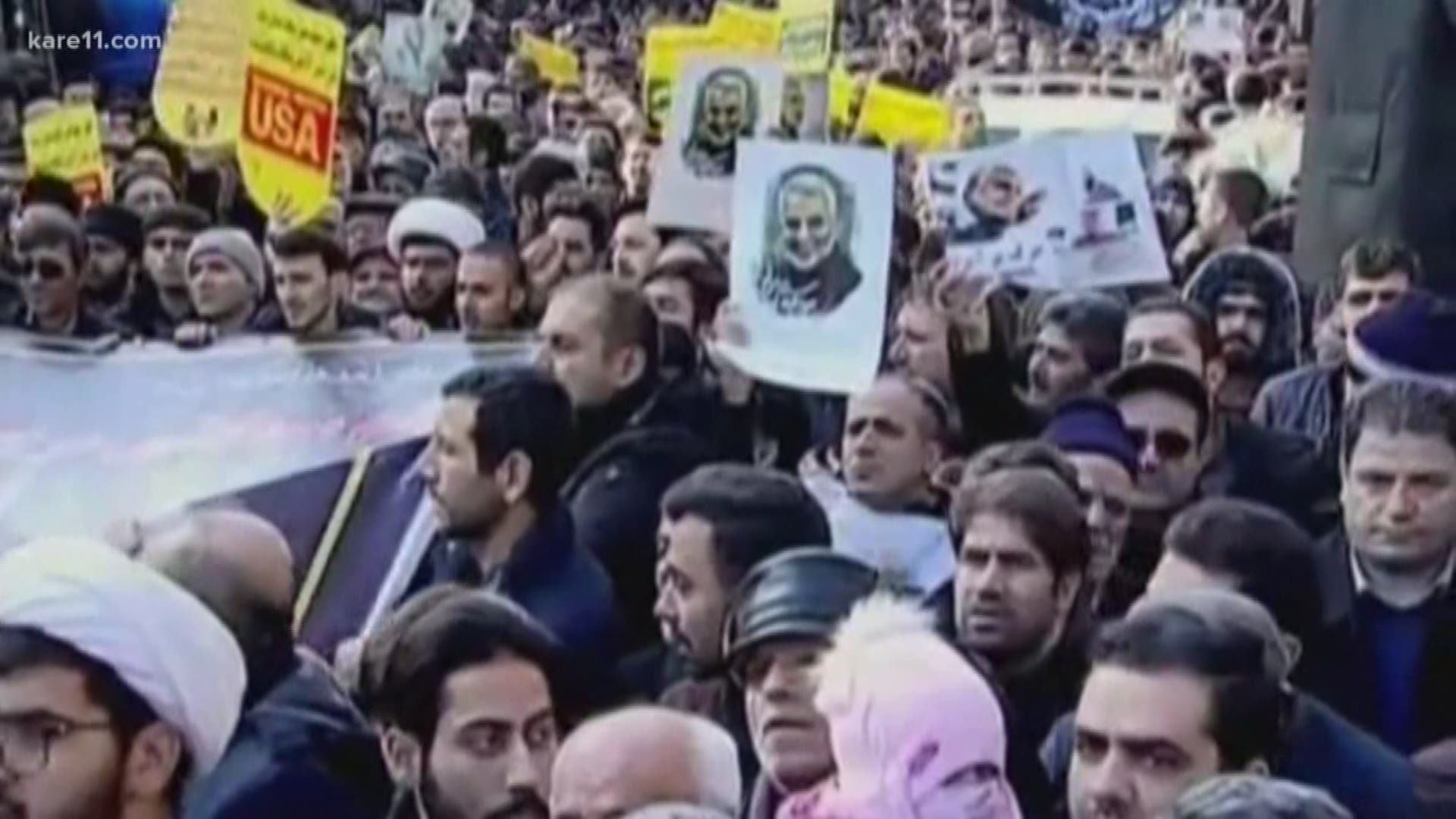MINNEAPOLIS — As he followed news reports from the past 24 hours, Jay Shahidi used these words to describe his emotions: "sad, worried and afraid."
The Iranian-American small business owner in the Twin Cities, who has campaigned for human rights in the U.S. for nearly a half-century, said the killing of General Soleimani runs too many risks and will alienate the Iranian public — one that he believes in his heart "basically" wants democracy and American values.
"What makes President Trump or his few advisers think that by provoking Iran, they're going to get anywhere?" Shahidi said. "Basically, with one act, we've angered the massive population of Iran, plus their friends around there."
Shahdi's viewpoint is shared by many Democrats in Congress, who similarly argue that the government-ordered killing of a foreign general will only escalate tensions.
The Trump administration and his congressional supporters, however, argue otherwise - including Minnesota Republican Jim Hagedorn, who called the world "safer with the elimination of Qassem Soleimani. Soleimani was a known terrorist whose very existence was a threat to U.S. troops and Syrian civilians."
The question now: How will Iran respond?
"Cybersecurity is not off the board for Iran," said Benjamin Brooks, a Navy reservist and vice president of the Twin Cities-based cybersecurity firm, Beryllium. "Does that mean they're going to come after individual United States citizens, here in America? No... What you're more likely to see is an attack against a major U.S. corporation, or against specific military installations."
Brooks also anticipates that Iran may retaliate by closing off waterways to target oil flows, calling that the "most likely course of action."
Cyberattacks from Iran, however, have long been a source of concern among U.S. officials — even before the events of the past 24 hours. Chris Krebs, the director of the Cybersecurity and Infrastructure Security Agency (under the umbrella of DHS), tweeted he was "re-upping" a June statement that warned the American public to remain vigilant.
"Bottom line: time to brush up on Iranian TTPs," Krebs said in a tweet, "and pay close attention to your critical systems, particularly ICS. Make sure you're also watching third party accesses!"

